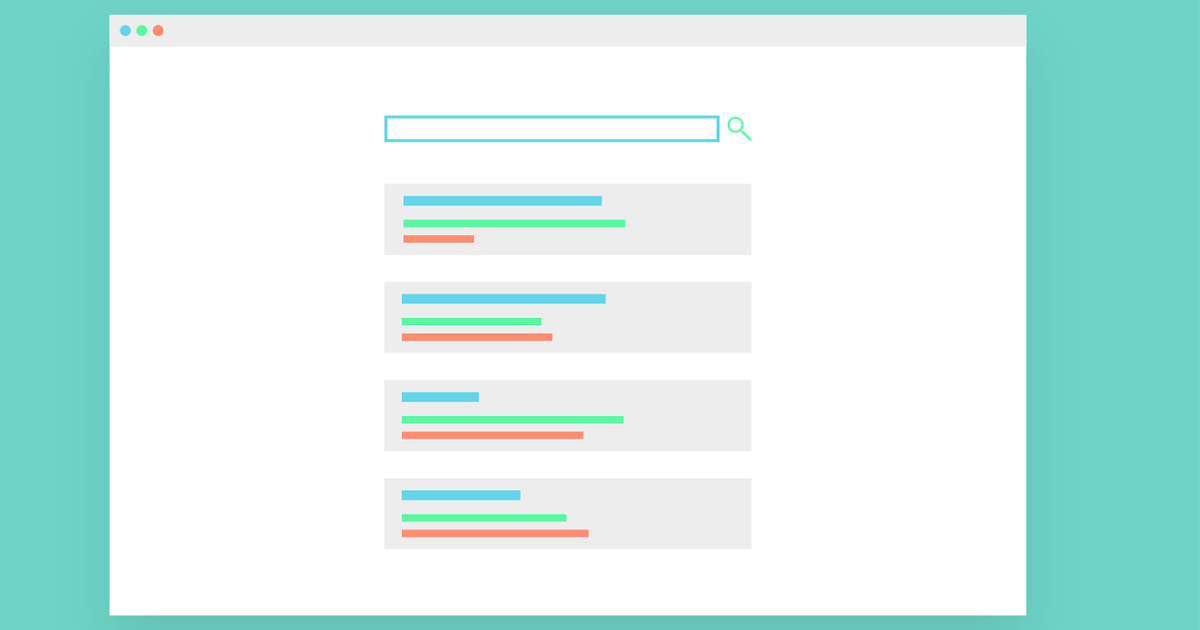“I’m creating high-quality content, but it’s not ranking well.”
“I don’t understand why my rankings aren’t improving. I’ve implemented all the important SEO practices…”
Are these your concerns?
It can be unsettling when you’re aiming for the top search spot, yet your site doesn’t even appear on the first page.
You might start to wonder, “Are my current efforts actually working? Is Google even functioning properly?”
However, the factors holding back your rankings likely lie within unnoticed areas of your site.
In this article, we’ll explain 11 common reasons why search rankings may not improve and how to resolve them.
In SEO, it’s crucial to address each potential obstacle preventing ranking improvements.
There could be unexpected factors causing lower rankings, so check out the 11 points discussed in this article.
Table of contents
11 Common Reasons Why Your Search Rankings Aren’t Improving and How to Fix Them
Let’s dive into the 11 common reasons why search rankings may not improve and their solutions.
- The targeted keyword is too competitive
- The search intent isn’t satisfied
- Duplicate content exists
- Keyword cannibalization is occurring
- Lack of originality
- The domain is too new
- Titles aren’t optimized
- Internal linking is insufficient
- On-page optimization is lacking
- Not enough backlinks
- Penalties have been incurred
Let’s go through them one by one.
1. The Targeted Keyword is Too Competitive
If your content isn’t ranking well despite being high quality, it’s worth reconsidering your targeted keyword.
Are you targeting keywords that are too competitive?
Whether you rank well largely depends on the keywords you’re aiming for.
This is because search rankings are “relative.”
No matter how great your SEO and content are, if there are too many competitors with superior content, it will be nearly impossible to rank highly.
If you’re only targeting high-difficulty keywords, reconsider your keyword strategy.
- Broad Keywords
Keywords like “salon” or “advertising” with over 10,000 monthly searches.
- Highly Profitable Keywords
Keywords like “SEO company” with lots of ads in the search results.
Keywords like “vacuum cleaner comparison” that attract users with high purchase intent.
- Keywords with Strong Competitors
Keywords where top results are dominated by major e-commerce sites (like Amazon or Rakuten), industry-leading companies, or large portal sites with strong domains.
Especially in the early stages of SEO, targeting such competitive keywords will likely result in failure to rank well.
However, if you target low-competition keywords that have no search demand, ranking high won’t lead to results either, so be cautious.
- Start by targeting “long-tail keywords” that are easier to rank for and more likely to drive conversions
For more details on how to assess keyword difficulty and find easier keywords to rank for, check out the following page.
How to Assess SEO Keyword Difficulty and Tips for Ranking Higher
2. The Search Intent Isn’t Satisfied
If you’re confident in the quality of your content, consider whether it is truly “high-quality” from the perspective of search users.
If users need to visit other sites or search again after visiting your page, it means the search intent hasn’t been fully satisfied.
Even if you think you’re providing valuable information, there are common cases where:
- The content doesn’t fully address the user’s query.
The answer to the user’s question is missing or insufficient.
- The search intent is not fully satisfied
New questions that arise while browsing the content are left unanswered, or there’s no information to satisfy latent desires.
Your goal should be to create content that allows users to complete their search journey on your site.
The key is to imagine the real-life scenario of your search users and provide answers that solve their problems.
Dig deeper into the following aspects:
- Who is searching for the keyword, and in what situation?
- What specific problem do they have?
- What is their ideal outcome, and what do they want to avoid?
By doing this, you’ll likely uncover not only the explicit search intent but also the latent search intent of your users.
For more details on how to analyze search intent, check out the following page.
Take a look.
What Is Search Intent in SEO? How to Accurately Identify and Use It in Content
- Dive deep into search intent and add or remove content as needed
3. Duplicate Content
One of the often-overlooked factors that can prevent a rise in search rankings is “duplicate content.”
Duplicate content refers to identical or very similar content existing within the same site or across different sites.
It is difficult to clearly define how similar content must be to qualify as duplicate content.
However, if content is too similar or differs only slightly, Google may view it as “thin content” or “low-value content” (though duplicate content itself is not penalized).
While duplicate content doesn’t always negatively affect rankings, it can often be a contributing factor in cases like the following, so it’s worth checking.
- If over 50% of the page consists of identical sections (such as boilerplate text)
- Delete the duplicate sections on one page
- Consolidate the content into one page
- Rewrite the duplicated sections
After fixing the duplicated sections, monitor to see if your rankings improve.
For more detailed information about duplicate content, check the following article.
What is Duplicate Content? Is it Penalized in SEO? Explaining the Drawbacks and Solutions -webma-
4. Keyword Cannibalization
If your search rankings are unstable or not improving, keyword cannibalization might be occurring.
Cannibalization happens when multiple pages of your site are ranked for the same search keyword, and the search engine is unable to determine which page to prioritize.
For example, if both Page A and Page B are ranked for the keyword “technical SEO,” keyword cannibalization is taking place.
The main issues with cannibalization are:
- Google can’t decide which page to rank for the keyword
- The value that should be concentrated on one page is spread across multiple pages
This often goes unnoticed as your site grows larger, but addressing it could improve your rankings. First, check if cannibalization is happening on your site.
- Don’t create multiple pages targeting the same search intent
- If you find cannibalization, handle it using the following methods:
- Adjust the keywords on each page
- Delete or noindex unnecessary pages
- Merge pages and set up a 301 redirect
- Use canonical tags to consolidate URLs
- Optimize internal linking
For more specific solutions to cannibalization, check the article below.
If you suspect cannibalization on your own site, this will be helpful.
What is Keyword Cannibalization in SEO? Explaining the Issues and Solutions
5. Lack of Originality
Does your content provide unique value?
Is it too similar to competitor sites?
Even if it’s not a copy, if the content is almost the same, it won’t be seen as high-value content.
Google has emphasized in various documents that it highly values originality.
Content and quality questions
- Does the content provide original information, reporting, research or analysis?
- If the content draws on other sources, does it avoid simply copying or rewriting those sources and instead provide substantial additional value and originality?
Source: Google Search Central – What Site Owners Should Know About Core Updates
Imagine your own experience searching: seeing multiple identical pages in the results is frustrating.
To make your content stand out, you need a deep understanding of search intent.
Without this, your content will end up merely imitating competitors on the surface.
First, thoroughly investigate and analyze the search intent.
Once you’ve done that, consider how you can add originality using methods like these:
- Write about your own experiences and insights
- Innovate in how you summarize information (use images, tables, charts that others don’t)
- Include test results or survey findings
6. Short Domain History
If you’ve only been operating a new domain (site) for 1–2 months, it’s no surprise that your rankings aren’t rising as expected.
New sites generally have lower overall evaluation compared to competitors.
No matter how good your content is, rankings won’t improve immediately.
There’s also a period before Google discovers and indexes your site.
After a new page is published, it can take time for Google to crawl and index it. The time to complete indexing varies depending on various factors, usually taking from 1 day to several weeks.
It’s best to wait at least 3 to 6 months.
- Enhance the overall strength through internal optimization, external efforts, and content improvements while monitoring for 3 to 6 months
※ However, if your site is still not indexed after several months, there may be an issue with your site. Make sure to check on Google Search Console whether it has been indexed.
If your site hasn’t been indexed, refer to the article below.
The reason your homepage isn’t showing up in search results! Explanation of remedies
7. The Title is Not Optimized
The title is a factor that can easily influence search rankings.
Just as search users infer the content from the title, search engines also use the title to determine the content of the page.
If you want to rank high for a specific keyword, it is important to clearly tell the search engine, “This page is highly relevant to this keyword.”
If your title looks like the following, it could be a reason why your ranking is not improving.
- The targeted keyword is not included
- It does not accurately represent the content of the page
Moreover, the title also affects the click-through rate (CTR).
It is unclear whether a high or low CTR directly influences rankings, but increasing CTR is crucial for driving more traffic to your site.
In theory, Google could adjust rankings by determining that pages with higher clicks are of more interest to users.
Try adjusting the title and monitoring the results for 1-2 weeks.
- Use a title that reflects the content and keywords
- Create a title that encourages higher click-through rates
8. Internal Links Are Not Properly Set
Internal links are links that connect pages within your website.
If the structure of these internal links is overly complex, it can hinder your rankings.
When unrelated pages are internally linked, it can lower the quality assessment of both pages.
The SEO benefits of properly setting internal links include the following three points:
- Increase Relevance
By linking related articles together, the comprehensiveness of the information improves, making it easier for users to find the information they need.
As a result, Google may better evaluate the quality of both pages.
- Indicate Important Pages to Search Engines
Google considers pages with many internal links as more important.
This helps raise the ranking of intended pages.
- Make It Easier for Google to Find Pages
One way Google finds pages is through internal links.
Thus, by setting internal links properly, you increase the chance of search engines finding your page quickly.
Given these benefits, setting internal links correctly may lead to a rise in rankings.
- Review and organize your internal link structure (link related pages)
For more details on optimizing internal links, please check out the article below.
【Internal Link Textbook】5 Key Points for SEO and Optimization -webma-
9. Internal Optimization Is Insufficient
No matter how good your content is, if it’s not properly communicated to search engines, your ranking won’t improve.
Take another look at whether your site is properly optimized internally.
Internal optimization helps search engines understand your site quickly and correctly, while also improving the user experience.
Internal optimization includes various strategies such as crawl optimization, indexing, and UX improvement, which can require technical knowledge, making it a challenging task for some.
However, in a 2017 U.S. survey, “technical internal optimization” was the strategy that delivered the highest effectiveness over the past 12 months, highlighting its importance.
Source: The 2017 State of Enterprise SEO Report
If your rankings aren’t improving, you need to address each internal factor that might be hindering your progress.
- Check your site for insufficient internal optimization
10. Not Enough Backlinks
Although content quality is crucial in modern SEO, backlinks (links from other sites to your site) remain highly effective as of 2021.
Google views backlinks as a form of endorsement and uses them as one measure of content and site quality.
The idea is that “a page others want to share or cite must be a great page.”
Backlinks from authoritative or relevant sites can significantly boost your page’s ranking.
If you haven’t acquired enough backlinks, it’s important to actively work on backlink-building strategies.
For example, you can create interview articles or engage in link outreach.
Simply waiting for backlinks to come naturally may not be enough.
However, avoid using services that generate a large number of backlinks, as this could result in a penalty from Google.
- Implement strategies to naturally acquire backlinks
For more details on how to acquire backlinks, please check out the article below.
What Are Backlinks? Understanding SEO and How to Increase Backlinks
11. You Are Under a Penalty
One reason your search rankings may not be improving is that you are under a penalty from Google.
A penalty is a punishment imposed on sites that violate Google’s guidelines.
There are generally two types of penalties:
- Manual Penalty
A penalty implemented by a Google representative after a visual inspection. Severe penalties can result in removal from rankings or deletion from the index. If you receive a manual penalty, you will be notified in Search Console.
- Automated Penalty
A penalty detected and automatically applied by Google’s algorithms. Although your rankings will drop, these penalties are generally less severe than manual ones. You will not receive a notification, so you must improve the situation on your own.
The main causes of penalties include:
Buying and selling links, excessive reciprocal linking, and creating sites for the sole purpose of linking.
Automatically generated content or pages that are copied without permission, providing little unique value.
Additionally, any attempt to artificially boost your rankings could lead to a penalty, ultimately lowering your rankings.
Specific actions that could result in a penalty are summarized on the page below, so please check it out.
Google Search Central – Webmaster Guidelines (Quality Guidelines)
For more details about penalties, we also have a dedicated page on this site.
What You Need to Know About Penalties Before SEO: Understand the Causes and Countermeasures for Proper SEO
- Check Google Search Console for any manual penalties. If you have received a penalty, make improvements.
- Avoid Black Hat SEO methods.
Note: Improve the Overall Quality of Your Site
Google evaluates the overall quality of your site using various metrics.
Simply improving individual tactics like “writing good articles,” “including keywords in titles,” or “gathering backlinks” will not guarantee higher rankings.
Your goal should be to create a site that is “useful and beneficial for search users” as a whole.
To achieve this, it is essential to comprehensively work on the following three countermeasures:
- Internal Measures
- External Measures
- Content Measures
Moreover, regarding content quality, the presence of even a small amount of low-quality content on your site can negatively impact the overall evaluation of your site.
Instead of indiscriminately increasing low-quality content because your rankings aren’t improving, focus on providing “high-quality content” across your entire site.
If Rankings Are Not Improving, Consider Consulting a Professional
If you have addressed the issues mentioned above but still aren’t seeing improvements in search rankings, it may be worth consulting an “SEO professional.”
An SEO professional is a company specializing in SEO consulting or SEO outsourcing.
Much of the SEO information available online can be outdated or unreliable, making it difficult for beginners to discern what is accurate.
If you want to achieve results in SEO efficiently, seeking advice from an expert can be the fastest route.
By partnering with a company that has accumulated a wealth of knowledge on the ground, you can clarify which measures should be prioritized for your site, potentially speeding up your journey to higher rankings.
However, it’s also true that some unscrupulous operators exist.
Start by requesting performance materials from multiple companies and taking advantage of free consultations.
[Summary] Take Steady Steps to Improve the Overall Quality of Your Site!
Have you been able to identify the reasons why your site’s search rankings aren’t improving?
SEO is not a strategy that yields immediate results in a short time.
Be patient and steadily accumulate what you can do.
Lastly, here’s a summary of the 11 factors:
- The target keywords are too difficult
- The search intent is not being met
- There is duplicate content
- Cannibalization is occurring
- There is a lack of originality
- The domain has a short history
- The title is not optimized
- Internal links are not properly set
- Internal measures are insufficient
- There are few backlinks
- You are under a penalty
If none of the above factors apply to you and you’re unsure what to do, feel free to consult us at Xscore.




